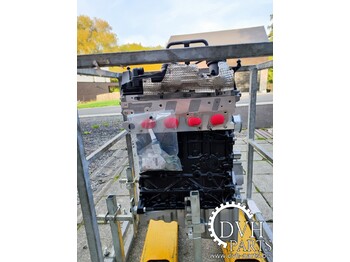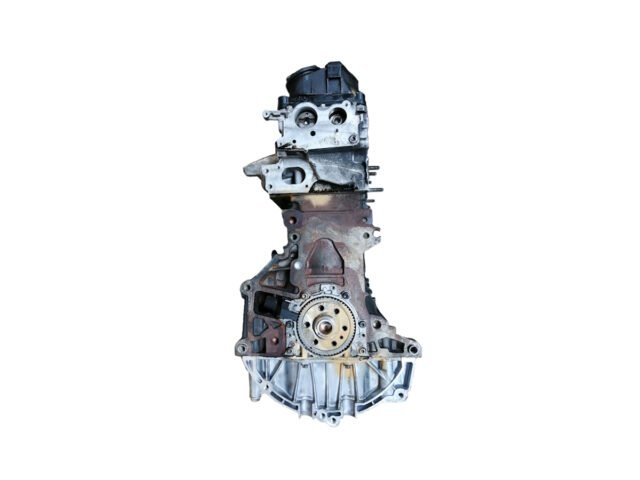Vital Considerations and Tips for Choosing the Right Engine for Your Demands
Picking the right engine is a multifaceted choice that calls for careful factor to consider of various factors to ensure optimal performance for your details requirements - amarok engine for sale. Understanding your designated application is extremely important, as the needs of industrial, industrial, or recreational usage will dramatically affect your choice. Furthermore, examining crucial specifications such as torque, horsepower, and gas performance, along with upkeep requirements and spending plan restraints, will certainly assist you towards a lasting investment. The details of engine choice expand beyond these fundamentals, triggering a closer exam of critical components that can inevitably affect your complete satisfaction and success.
Determine Your Purpose
Establishing your function is an important first action in selecting the appropriate engine for your requirements. Recognizing the certain application you have in mind will assist your decision-making procedure and ensure that you pick an engine that aligns with your functional requirements. Whether you require an engine for a commercial automobile, industrial machinery, or an entertainment job, each circumstance demands various performance attributes and capabilities.
Consider the atmosphere in which the engine will certainly operate. Will it go through hefty loads, extreme temperature levels, or prolonged use? Analyzing these factors will aid you identify the needed power result, fuel effectiveness, and sturdiness required to fulfill your objectives.
In addition, think of the long-term ramifications of your option. Budget plan restrictions, upkeep needs, and availability of components are crucial factors to consider that will certainly influence your total satisfaction and operational efficiency.
Ultimately, articulating your objective will certainly simplify the option procedure and empower you to make an informed decision. By plainly specifying your purposes, you can review possible engines better and pick one that not only meets your current needs yet likewise supports your future goals.
Evaluate Engine Specifications
As soon as you have actually plainly articulated your objective, the following step is to assess engine specifications. This process entails a detailed evaluation of numerous technological information that can significantly affect efficiency and suitability for your intended usage.
Begin by examining the engine's horsepower and torque ratings. Horse power is vital for identifying the engine's ability to execute work, while torque is vital for understanding just how well it can manage heavy lots or acceleration. Additionally, take into consideration the engine variation, as it commonly correlates with power output and effectiveness.
Next, examine the engine typeâEUR" whether it is a fuel, diesel, or alternate fuel engineâEUR" as each type has unique qualities and applications. Focus on the engine's arrangement (e.g., inline, V-type), as this can influence size, weight, and overall performance.
One more essential aspect is the engine's air conditioning system, which can influence reliability and maintenance requirements. Lastly, examine the maker's track record and guarantee offerings, as these can give insights into long-lasting performance and support. Completely evaluating these specs will certainly help make sure that you pick an engine that aligns with your details needs and functional goals.
Consider Fuel Effectiveness
Gas performance is a vital variable to take into consideration when selecting an engine, as it directly impacts operational expenses and ecological sustainability. An engine's gas performance is typically measured in miles per gallon (MPG) for automobiles or in specific gas consumption (SFC) for aircraft and marine engines. Higher fuel efficiency not only reduces the amount of fuel consumed but also minimizes greenhouse gas discharges, making it an accountable option for eco-conscious customers.
When reviewing engine alternatives, it is important to examine the driving conditions and meant use. Engines maximized for freeway driving may display far better fuel performance contrasted to those designed for stop-and-go web traffic. In addition, take into consideration the engine's technology, such as turbocharging or hybrid systems, which can substantially boost fuel efficiency.

Assess Upkeep Demands

Some engines may need more regular oil changes, filter substitutes, or specialized servicing, which can affect click here for more info your operational downtime. Engines with extensive popularity typically have much better parts accessibility, reducing lead times during repair services.
An additional crucial facet is the technical knowledge needed for maintenance. Some engines may necessitate specific training for technicians, which might restrict your options for provider. Moreover, assess whether the engine's style enables for simple access to elements often needing upkeep, as this can substantially impact labor expenses.
Budget Your Investment
Comprehending upkeep demands is simply one facet of selecting the best engine; economic factors to consider play an equally essential function (amarok engine for sale). Developing a clear spending plan is crucial, as it influences not only the initial acquisition rate but also long-lasting functional prices
When budgeting, consider both the continuous expenditures and ahead of time prices such as gas performance, maintenance, and prospective repair work. An apparently economical engine might sustain greater expenses in time because of poor gas economic situation or frequent upkeep requirements. Additionally, examine the schedule and cost of spare components, in addition to the service warranties used by manufacturers, which can give economic security versus unpredicted costs.
It is likewise a good idea to element in possible financing choices or renting arrangements, which could alleviate immediate economic concerns. Stabilize your need for sophisticated attributes with your budget restrictions, ensuring that you purchase an engine that fulfills your performance needs without endangering financial stability.
Inevitably, an all-round budget will certainly encourage you to make educated choices, aligning your engine choice with both your monetary capacities and operational needs, bring about a more lasting investment in the future.

Final Thought
In conclusion, picking the appropriate engine demands an extensive understanding of specific needs and applications. Cautious assessment of engine requirements, fuel important site effectiveness, and upkeep demands is essential for informed decision-making. Furthermore, developing a thorough budget guarantees that both ongoing and initial expenses are workable. By sticking to these factors to consider, individuals and organizations can make a sustainable investment that lines up with their functional objectives and efficiency assumptions, inevitably boosting overall effectiveness and efficiency.
Fuel efficiency is a vital aspect to think about when choosing an engine, as it directly impacts operational costs and ecological sustainability. An engine's gas performance is commonly gauged in miles per gallon (MPG) for automobiles or in certain fuel usage (SFC) for aircraft and marine engines. Diesel engines usually supply much better fuel effectiveness than gasoline engines. Inevitably, picking an engine with a solid emphasis on gas effectiveness can lead to considerable long-term savings and add favorably to environmental efforts. Cautious assessment of engine specifications, fuel efficiency, and upkeep demands is crucial for educated decision-making.